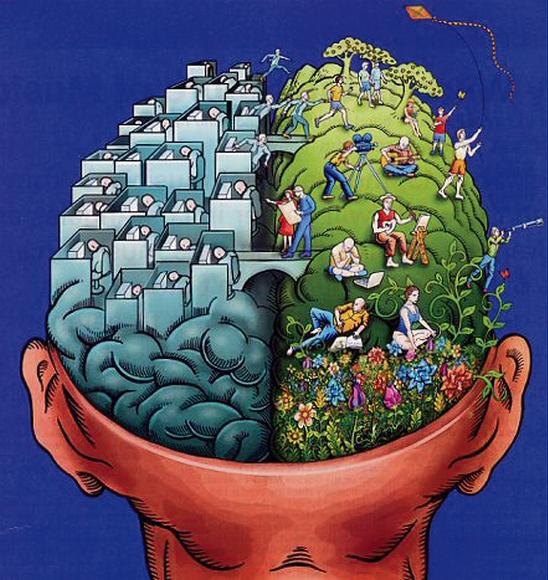CD Reviews
May 19, 2004
The Polyphonic Spree
“Together We’re Heavy” (Hollywood)
Compare to: Poison Control Center, The Flaming Lips, Pink Floyd
If the psychedelic musings of the now-defunct Tripping Daisy made frontman Tim DeLaughter an indie-pop demigod, his latest band, The Polyphonic Spree, is the cult following created in its aftermath.
This isn’t just a numbers game, although the sheer size of the Spree — somewhere around 20 white robe-clad members — is enough to make non-believers sip their Kool-Aid a little bit faster. The real genius behind DeLaughter’s massive musical movement lies in the intense, spiritual crescendo that builds from the beginning of the album to the end.
Unlike the band’s first album, “The Beginning Stages Of …,” which was originally intended to only be used as a demo tape, “Together We’re Heavy” is poignant, thought-provoking ambient rock from the onset. DeLaughter and his followers set the tone with a unique, symphonic style, similar to The Beatles’ “White Album” if it were sung by a church choir.
An enormous crowd of backing musicians and singers may seem like a novelty, but the multi-layered instruments and sing-song choruses are exactly what gives this album its panache.
“Section 16 (One Man Show),” arguably the album’s best song, would be lifeless without the endless layers of piano, bells and harmonic vocals. If Phil Spector weren’t so preoccupied with staying out of prison, he’d be very impressed by the wall of sound this album creates.
One of the disc’s few faults is its whole is so much greater than the individual parts. While the album works well when viewed as one long, meandering experience, the individual songs become a bit tired and repetitive.
— Aaron Ladage
D12
“D12 World” (Shady)
Compare to: G-Unit, Three 6 Mafia, Swollen Members
There’s an old joke that goes, “How many hip-hop fans does it take to screw in a light bulb?” The answer? “Three. One to screw in the new bulb and two more to argue about how the old one was better.”
While the punchline holds true, rap lovers have never had a more justified cause for repulsion than “D12 World.”
The Eminem everyone either loved to hate or hated to love has spent too much time in stuffy recording booths with big-name producers and has left his lyrical talent back on 8 Mile Road.
The idea behind the first single, “My Band,” is funny because it’s true. Swift, Proof, Bizarre, Kon Artis and Kuniva will never be more than appendages held up by Marshall Mathers. Unfortunately, even he can’t make the song tolerable after the first listening. After the little pseudo-mariachi dance he performs at the end of the song, it would be a wonder if he could retain an ounce of street credit with real rappers.
It’s a shame getting back into the underground battle-rap scene isn’t a viable option for Em, because it could be the only way to revive the talents that won him respect in his pre-Dre days.
D12’s first release, “Devil’s Night,” was filled with sickening lyrical imagery and emotional catharsis, both at least containing raw passion. On “D12 World,” neither the conscious hip-hop heads nor the shock-loving perverts will be given their money’s worth.
At least the production matches the quality of the rapping in this abomination. Some of the least innovative beats released into the mainstream play alongside the six emcees’ least thoughtful rhymes.
— Andrew Mabe
Lionel Richie
“Just For You” (Island Records)
Compare to: Michael Jackson, Luther Vandross, Whitney Houston
The kids today, they love their Lionel Richie. And he loves them, too. In fact, in his newest album, “Just For You,” Richie does his best to draw in the younger crowd, dueting with such contemporary acts as Daniel Bedingfield and Lenny Kravitz.
But things are not all good for Mr. Richie. Apparently, the affable songwriter and segment host on “I Love the ’80s” has had his heart broken. A sad turn of events, surely, but a profitable one. More than one of the curly-headed one’s songs revolves around the alleged separation, most notably the insidiously sappy title track. Revelations are made, such as the earth-shaking proclamation that, “God was god/ Dreams were dreams/ Life was all cake and ice cream.” Apparently, Lionel’s life was a third-grade birthday party.
“They’re trying to tell me that the moon is in the ocean,” he states, but he then returns to his oft-stated refrain that he still believes in You and Me, and that love is the only way. He doesn’t clarify what love is the only way to do, but one assumes it’s some sort of plan to prove the moon is not, in fact, in the ocean.
In what could well be the only track on this CD inspired by the Sylvester Stallone film “Cliffhanger,” “Long Long Way to Go,” Richie sings, “you held my hand and then you slipped away/ and I may never see your face again.” But the song swiftly loses its focus, becoming yet another sappy love ballad with a swelling backup chorus.
Bizarrely, one of the sappiest of the tracks is “Time of our Life,” a duet apparently sung by Richie … to Lenny Kravitz. Kravitz’ penchant for powerful, stretching vocals is neutered as he plods through the puddle of crap.
— Luke Jennett
David Cross
“It’s Not Funny” (Sub Pop)
Compare to: Dennis Miller, George Carlin, Robert Schimmel
Racist, sexist, homophobic, God-fearing Republicans be forewarned — David Cross hates you.
“It’s Not Funny,” the follow-up to Cross’ Grammy-nominated “Shut Up, You Fucking Baby,” makes absolutely no attempt to water down Cross’ political and social views on America. Cross jumps from one rant to another, from corporate rock and reality television to President Bush’s campaign against terrorism.
Audio tracks sometimes have difficulty fully conveying the humor of stand-up comics, but all of Cross’ anger and wit come through on “It’s Not Funny.” The jokes border on “unsettling” as Cross straddles the line of indecency and somehow comes out victorious by forcing the listener to think about where he or she stands on controversial issues.
Cross is a master of pointing out irony. He refers to a Texas legislative session where representatives were simultaneously debating a law to outlaw sodomy and a repeal of the law outlawing bestiality. He also points out the stupidity of a long-standing tradition in the South that graveyards be segregated by noting that someone somewhere must have said, “No man, I don’t even want to think about it. My dead, lifeless, rotting, maggot-infested corpse, next to some black man’s? Ewww, that’s gross.”
He jokes a bit about himself, but leaves the serious bashing for others, making it appear he finds himself somewhat blameless for any of the problems he sees.
— Krista Driscoll






